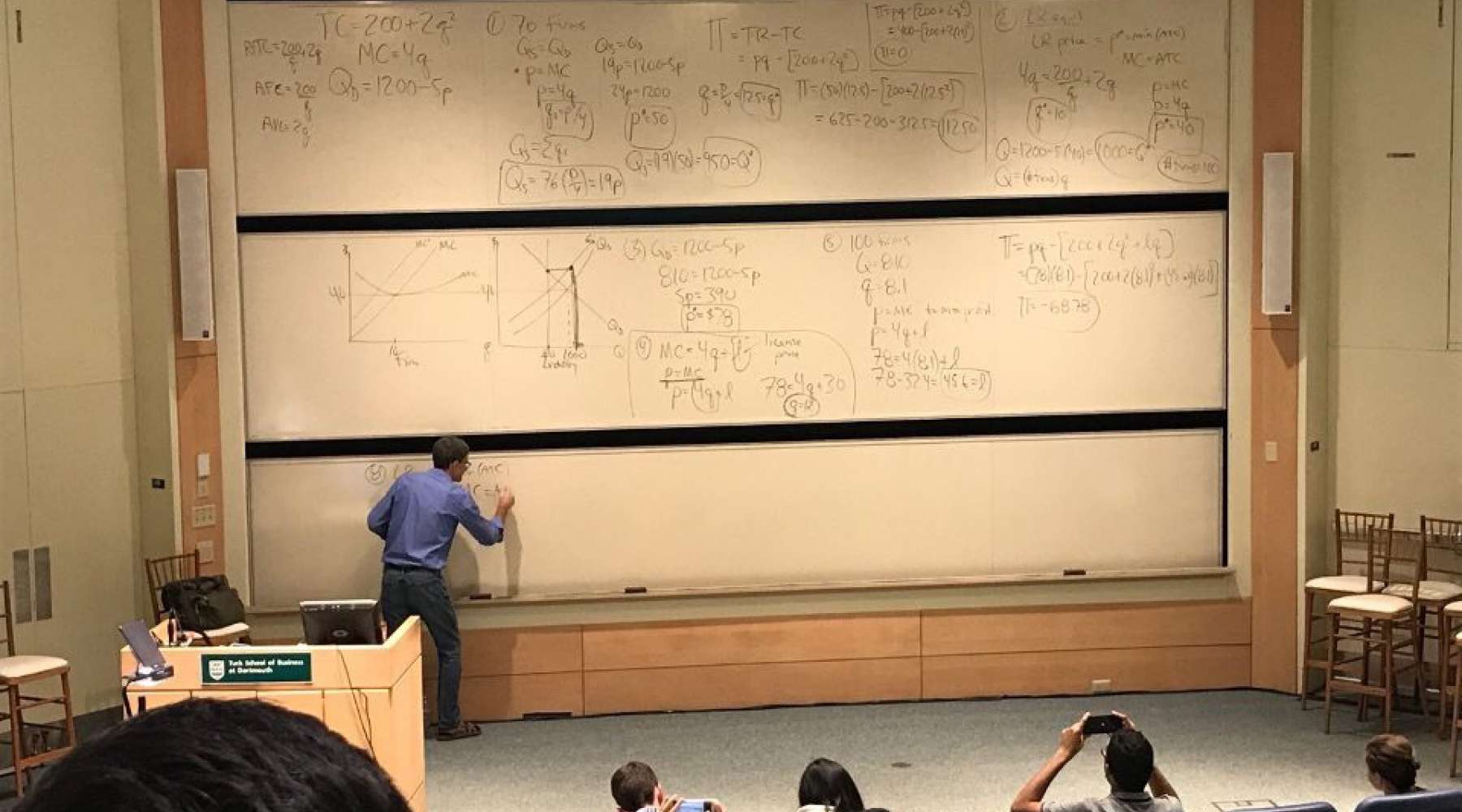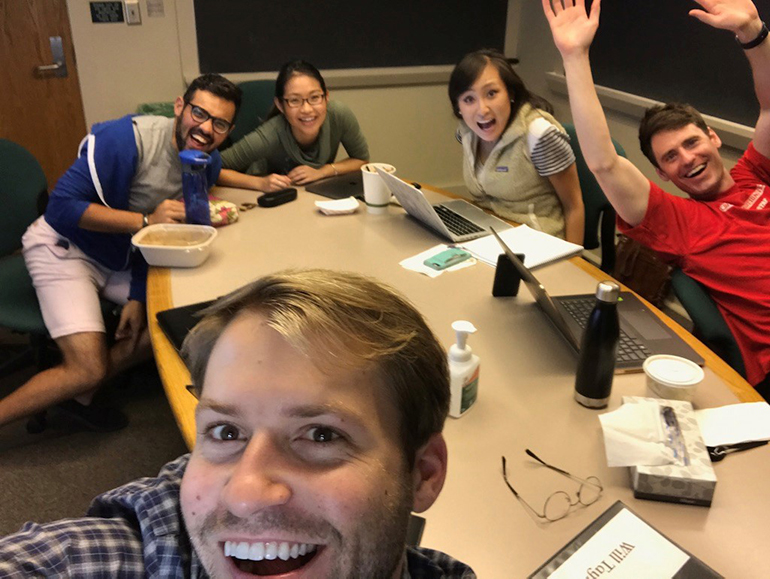
Long before I arrived in Hanover, many Tuckies had spoken about the initiation into the Tuck life: Fall A. In the excitement of moving and meeting new friends, I had forgotten about this four-week academic term that awaited us right after Orientation. I distinctly remember looking at the schedule for the first time and thinking, “Four subjects over four weeks with JUST two classes a day?! What the hell am I supposed to do with all this FREE TIME I will have?”
Fall A covers four subjects that are part of Tuck’s core curriculum, i.e., subjects that are essential for all managers. All of these subjects were taught by amazing professors whom we all have come to love over this past month. Now, at the start of the term I hadn’t realized all these are taught using the Case Method (like most other courses at Tuck), meaning, before each session, we would go through several readings and a case, develop a hypothesis, and discuss the same at length within our Study Group. For context, our entire class is divided into groups of five or six diverse individuals that will be your first family here at Tuck. Our Group (SG12) met daily for several hours as we grappled with both qualitative and quantitative problems.

The class of 2019 is divided into groups of five or six diverse individuals that will become each student's first family at Tuck.
I loved this hectic Fall A not only because it brought our group together (I cannot imagine my Tuck experience without them), but also because its core subjects were purely practical. I was never a fan of statistics. In fact, I wondered why we would study it in a business context! Yet, our Statistics for Managers course not only taught us how to use a given formula, but also how to interpret its results in a business setting. I was amazed to learn how organizations use standard deviation as a tool to make critical decisions with the Six Sigma Approach (don’t worry, I didn’t know the term until two weeks back) and understand the whole concept with an example of the American and Japanese automobile industries.
Similarly, I finally have a logical argument to counter my friends who wonder why I spend so much on the latest iPhone every two years: Apple has smart folks who have definitely studied the concept of consumer surplus in Management Economics (and now, so have we) and understand how to best extract it from would-be iPhone purchasers—yours truly included!
Remember, this is just the academics. Fall A is also the time when the 50+ clubs at Tuck start their activities. There’s a packed social calendar on which I’ll hardly comment—social gatherings, apple picking, Tripod Hockey … the list goes on and on!
With Fall A behind us, we T’19s are excited about Fall B; if it is anything close to Fall A, we are in for another adventure!
 Akshat Kalra is a first year student at Tuck. Before coming to Hanover, he worked in Consulting and Venture Capital in India. Post Tuck, he hopes to move into a consumer internet company to build exciting products. He is originally from Delhi, India but prefers the small town life of the Upper Valley.
Akshat Kalra is a first year student at Tuck. Before coming to Hanover, he worked in Consulting and Venture Capital in India. Post Tuck, he hopes to move into a consumer internet company to build exciting products. He is originally from Delhi, India but prefers the small town life of the Upper Valley.